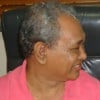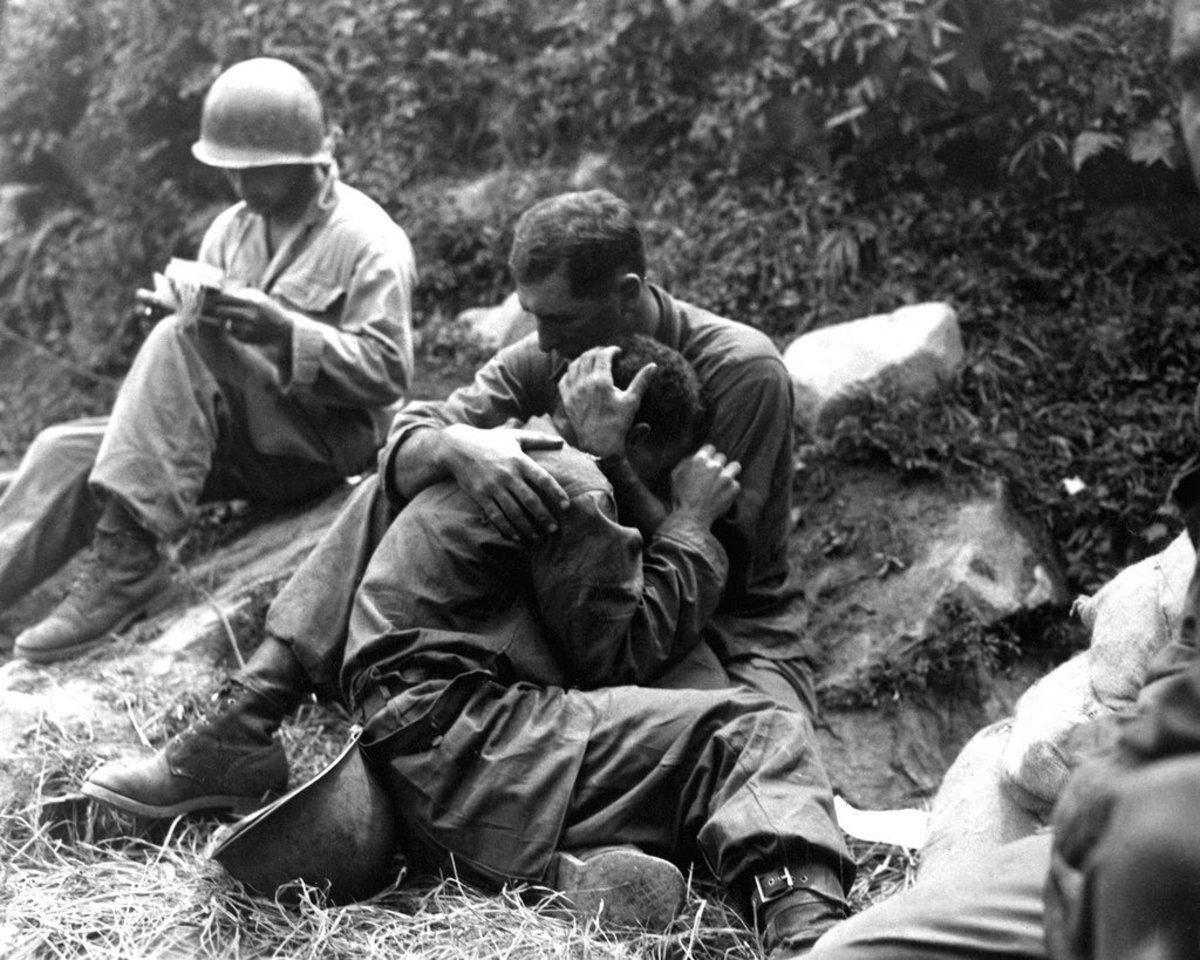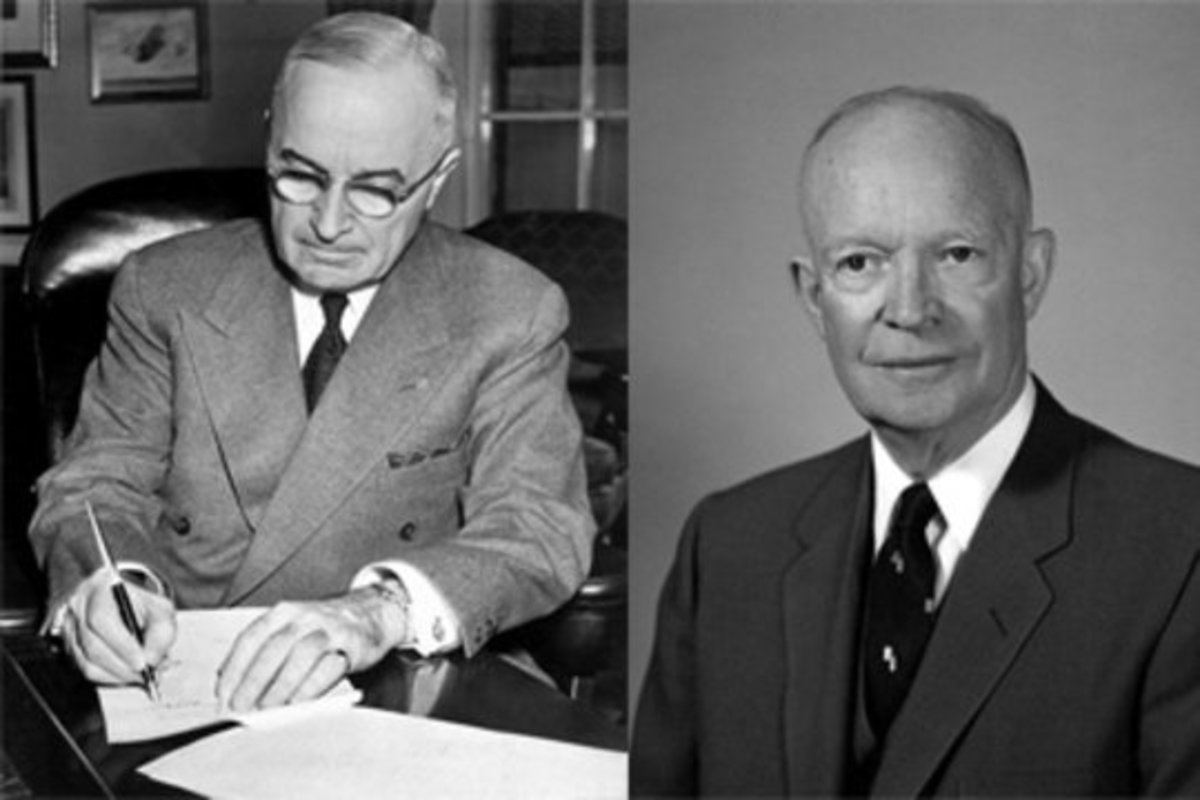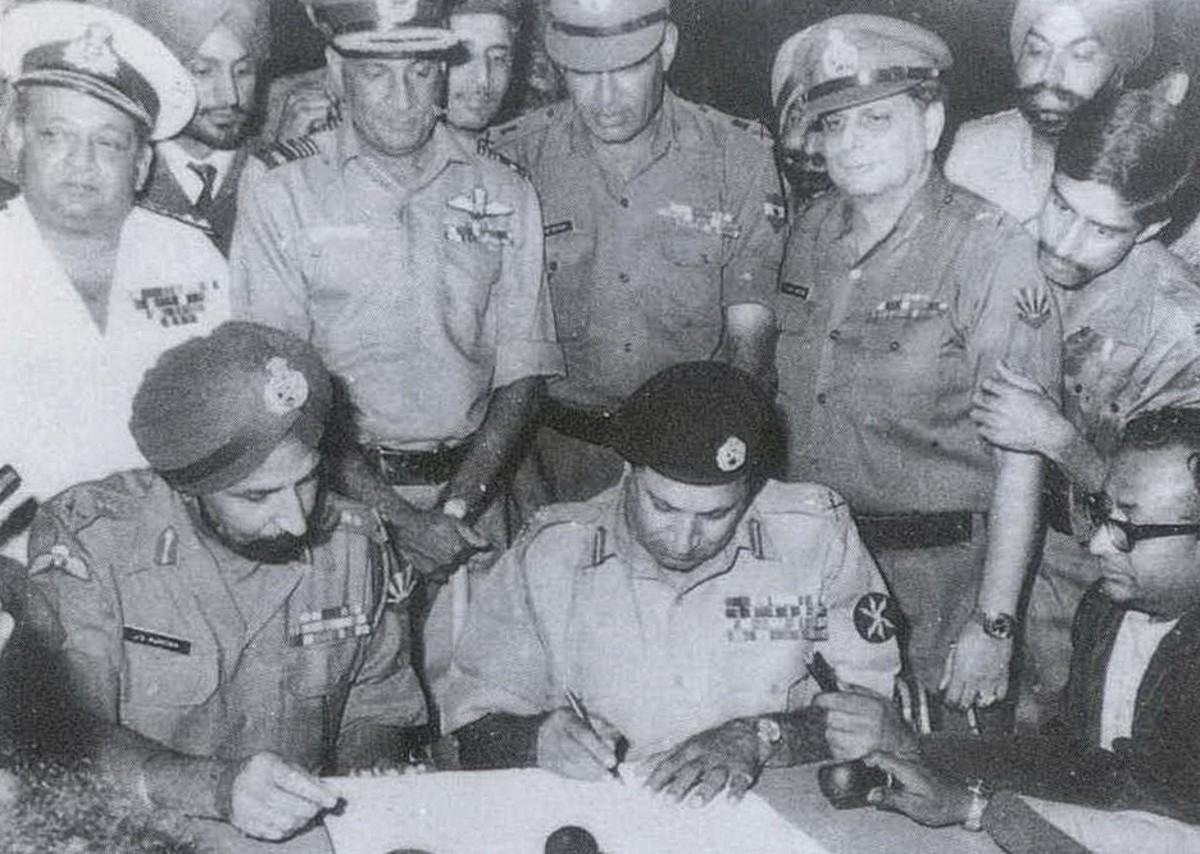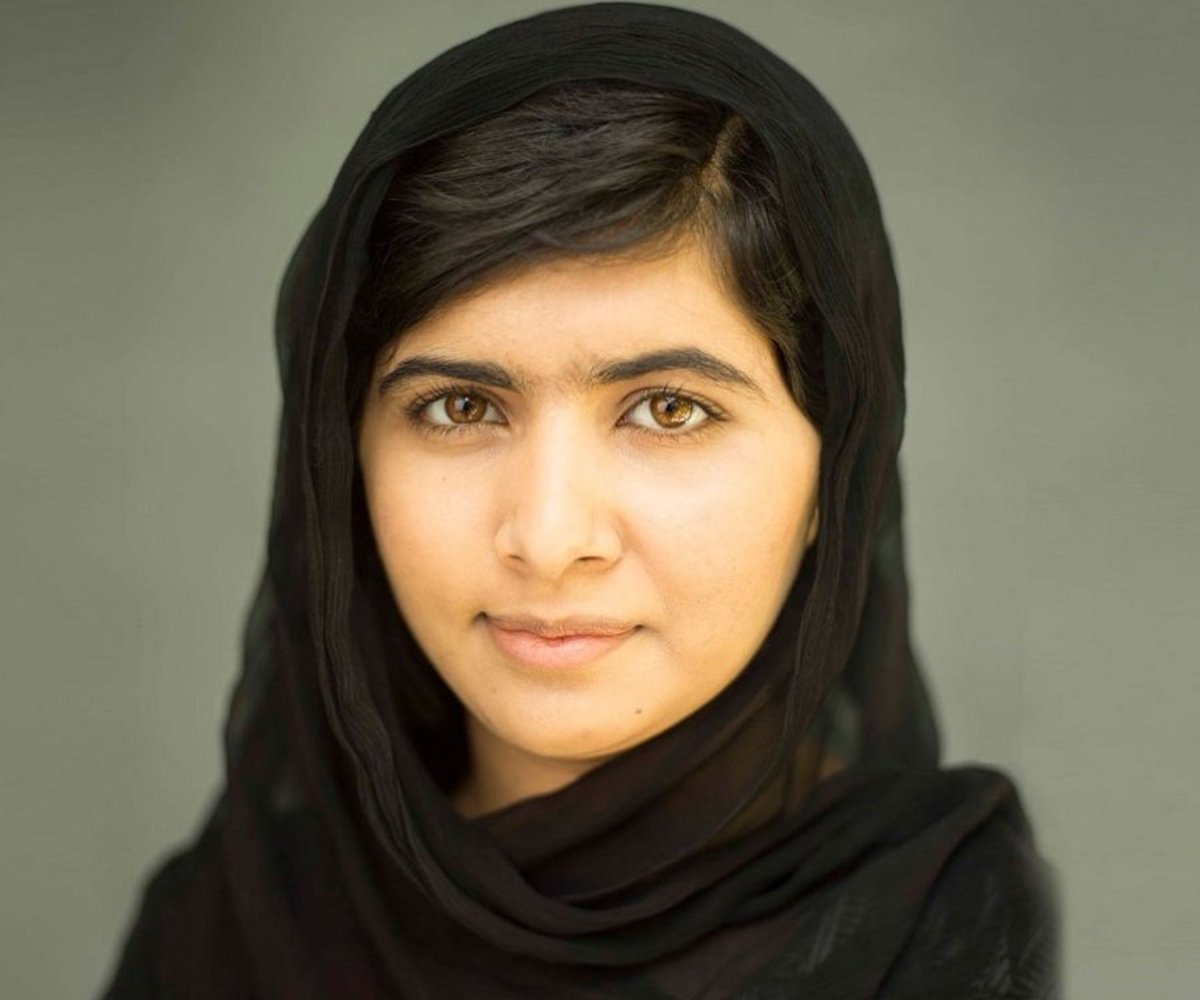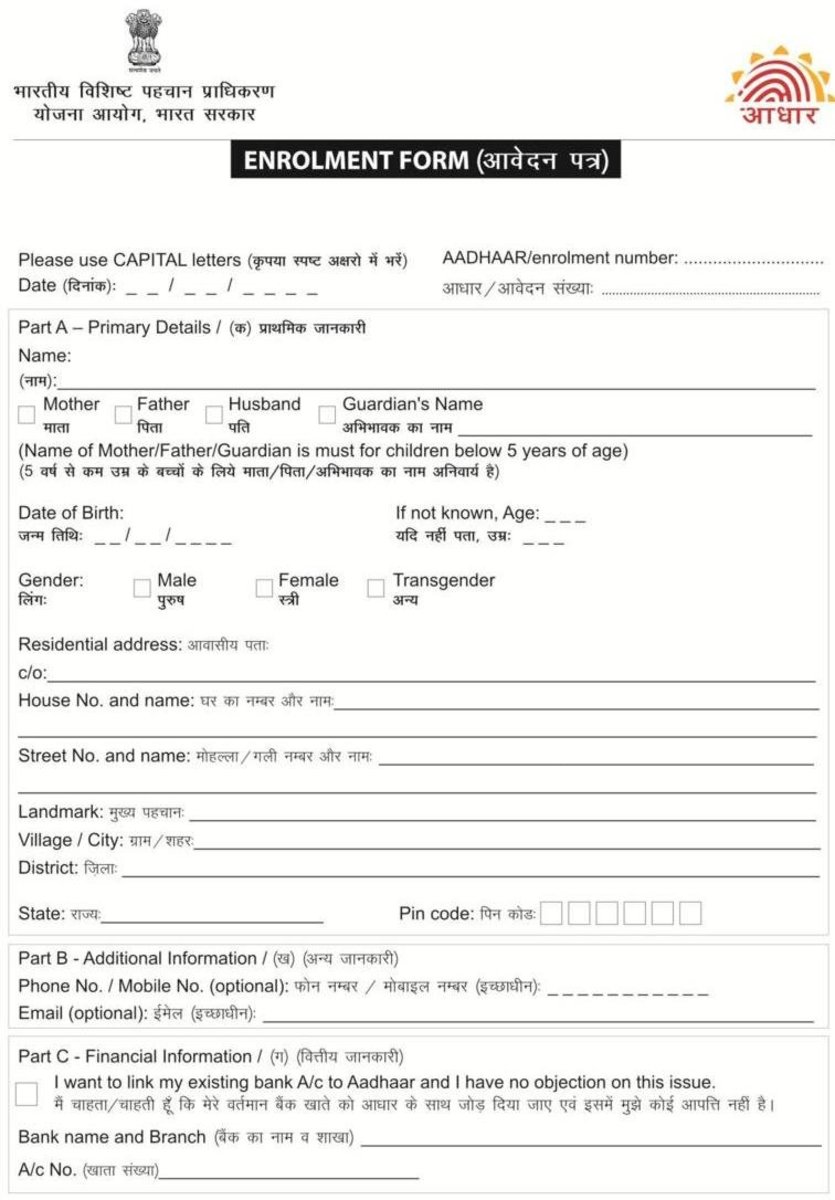A History of How the Korean Crisis Developed
Gen. Douglas MacArthur, who owned this cap, took as real the Cold War; it is a game of internationalist businessmen
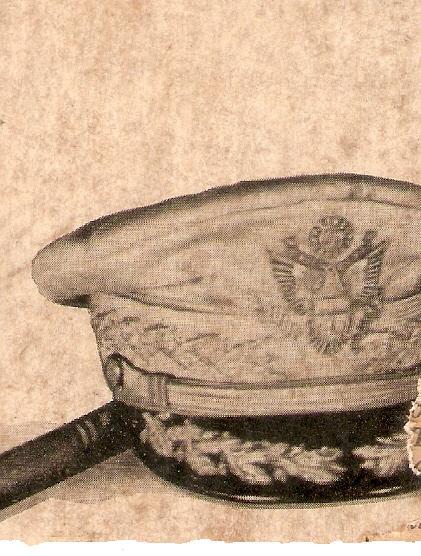
Pacific
The civil war in Korea was a proxy war of the Cold War, now that war is over
Look at the United States and China. They are different in political system and economic system yet they live together in peace and are trading with each other. In fact, the treaty of rapprochement between Pres. Richard Nixon and Chairman Mao includes an enumeration of their differences.
The civil war between the North and South Korea is officially not yet over. But what is now the point in pursuing armed struggle? North Korea could not conquer South Korea when it had the support of the USSR and China. South Korea could not conquer North Korea when it had the support of the U.S. and the United Nations. Alternatively, the United States could not conquer North Korea when it had the support of the United Nations and South Korea.
The Cold War
The split of Korea into the North and the South originated from the Yalta conference in Tehran, Iran (February 1945) between Pres.Franklin Roosevelt of the U.S., Marshall Joseph Stalin of the USSR, and Prime Minister Winston Churchill of Britain, who decided the destiny of the world after World War II. Hitler’s Germany was on the verge of defeat and the USSR would soon enter the Pacific War against the Japanese. Since Korea was occupied by the Japanese, the Americans and the Russians were obliged to drive away the enemy then leave. But the seeds of the Cold War was already planted, perhaps when Stalin got for Russia three votes in the United Nations yet to be organized and the U.S., Britain, and France and any other member, got one vote each.
We can speculate on other events that started the Cold War. Stalin could have had a hint of the plan of Hitler to roll over other nations, specially in Europe. So he carved out a secret non-aggression pact with Hitler. That way, Stalin became confident that Hitler would not attack Russia. However, when Hitler had overran 'Europe, except Britain, he attacked Russia in 1942. (Italy had conquered Ethiopia). That time, Russia was not well prepared. It was the Russian winter and miscalculation on the part of Hitler that saved Russia. Hitler gave rations to the German attackers good for about two months only. Hitler knew Russia could offer only a little resistance because of his deceptive secret non-aggression pact with Stalin.
Stalin called on the West (Europe, Canada, Australia and USA; Spain remained neutral) to open a strong second front of WWII for Hitler to divert German forces attacking Russia. The Allied Forces under the command of Gen. Dwight Eisenhower (American) launched an attack landing in Normandy only in 1945. By that time Stalin was already grumbling and accusing the West of bleeding Russia.
So the U.S. and Russia landed their armies in Korea. Gen. Douglas MacArthur, Commander of the Southwest Pacific Theater, got a go signal from both nations that the demarcation of their area of operations is the 38th parallel north of Seoul. This has stood as their boundary to this day.
There was an endogenous Korean resistance movement against the Japanese informally called People’s Republic that had a mass following in the whole peninsula. This had hammered out an ideology in the crucible of struggle against the Japanese who had occupied Korea in the past 35 years. The Russians favored the People’s Republic that started to implement land reform, and take over Japanese properties and distribute them in anticipation of the arrival of the liberation forces. They distributed hitherto Japanese-owned lands to Korean farmers without charge. They let Koreans manage hitherto Japanese-owned businesses.
The policy of the United States was as follows:
“If conservative nationalists likely to shift the economic assets of a new state from the old colonial power toward the United States dominated the resistance, as in Dutch East Indies, Washington was anti colonial and pro-independence. Where, on the other hand, the Left controlled the resistance and had a mass base, the United States recommended trusteeship or a prolonged but ‘liberalized’ continuation of colonialism, as in Indochina and Korea” (Kolko, J. and G. Kolko. “Korea, 1945-1948: The American Way of Liberation.” The Limits of Power. 1972: 277-299).
The U.S. instructed Gen. Abe, Japanese forces commander in Korea, not to surrender to the People's Republic because that would tantamount to recognition of its legitimacy. The Americans turned the Japanese into administrators while the Americans have not yet installed themselves in South Korea. Of course, the Koreans got confused, their former enemies were turned as administrators of their affairs. The Japanese were replaced by the American occupation forces.
The American Military Group (AMG) reversed the land distribution for free. "The AMG consistently opposed land reform of any kind and shelved even modest reform proposals for the Japanese-owned land, the best available, which the occupation had confiscated" (Kolko, J. and G. Kolko, 1972:288). In October 1946, the AMG, as directed by the U.S. State Department, began selling land. Some 1 million acres were formerly Japanese-owned, four-fifth of which was in the South. The latter were sold to anyone who could afford the price. The result? These lands went to the hands of war- and black-market profiteers, landlords, and businessmen. The legal limit of 30 acres for every buyer was commonly disregarded. The AMG went better than the Japanese in renting out land. The Japanese took a fixed portion of rice harvest only; the AMG took a portion of the rice plus other grains.
Korea used to have a surplus in rice. Businessmen close to the AMG hoarded rice. Soon the supply ran short and the U.S. had to export to ration rice to the South Koreans.
Failed trusteeship
The U.S. and Russia instructed the commanders of their forces in Korea to form a joint committee to prepare Korea for the agreed-upon four-power trusteeship of 30 years. The joint committee met between March and May in an atmosphere of animosity. In the negotiations Moscow did not want any rightist group (Syngman Rhee's) to participate; Washington did not agree. The joint committee adjourned on May 6,1946 to die naturally.
Leaders of the People’s Republic had a much wider mass following in the countryside than the Japanese and the Americans. It even declared that soon there would be a general election in both the U.S. and Russian occupied areas to elect officials of the Republic. The American Military commander in Korea, in irritation, rebuffed the declaration.
Birth of South Korea and North Korea
The Americans orchestrated an election (May 10,1948) that excluded the North. For the election, America had to sponsor a collaborator and had chosen Syngman Rhee, a rightist in exile in the United States. Rhee did not have a mass following but got the top post in South Korea anyway.
The United Nations approved the first election in South Korea despite the objection of two members of the committee assigned to oversee it. The U.N commissioned an interim committee. This committee formed a a subcommittee of journalists from 8 countries (Canada, France, Australia, China, El Salvador, India, Philippines, Syria). Delegates from Canada and Australia dissented from the recommendation (Kolko, J. and G. Kolko. The Limits of Power. 1972).
North Korea hurriedly conducted another election (August 25,1948) and installed another government in North Korea that claimed sovereignty over the whole peninsula. Some constituents in South Korea secretly participated in the election and those caught, 1,300 of them, were soon punished for this act. So, now there came about two Koreas: South Korea and North Korea both of which claim sovereignty over the whole peninsula..
Shooting war
On June 25,1950, North Korea launched the first attack on the South. Its troops had gone past Seoul. In a hurry, the United States was made caretaker of the United Nations in the South. Then the US appointed Gen. Douglas MacArthur as commander of the United Nations army in South Korea. MacArthur used US troops deployed in Japan as occupation force; some 80,000 South Korean troops were inserted into the United Nations army. South Korea was not yet a member of the United Nations but President Rhee approved the appointment of MacArthur anyway. A strategic landing at Inchon where the tide rose some 29 feet high turned the tables on the North Korean army that was driven back to the 38th parallel up to the Yalu river. Now Chinese troops came to the rescue of the North Korean army, using Manchuria as a "privileged sanctuary" as MacArthur called it because it is a Chinese territory. MacArthur wanted to bomb Manchuria on the "hot pursuit" principle. It is like a policeman can get into a house where a suspect is hiding to arrest him even without permission. The Pentagon and President Truman did not permit MacArthur to do so. There was an exchange of press dispatches and official messages between MacArthur and Gen. George C Marshall who was now Secretary of National Defense. MacArthur was perceived as being insubordinate for his insistence to bomb bridges at the Yalu river and north of it. To make MacArthur toe the line, President Truman and other high brash called MacArthur to a conference in Wake Island in the Pacific. After the conference President Truman asked MacArthur if there was any chance that Russia or China would intervene in the war on behalf of North Korea. In MacArthur's assessment there were none. The army of the United Nations was ready for them, he said.
[Gen. Marshall served as military adviser to Chiang Kai-Shek, president of Nationalist China, who fled to Formosa, now Taiwan, when Mao's forces overran mainland China. The U.S. played a deceptive role of neutrality between Mao and Chiang Kai-shek. The U.S. landed 153,000 military personnel in Nationalist China, including 53,000 marines and supported Chiang with planes and arms. Gen. Marshall tried to mediate a negotiated peace between Mao and Chiang Kai-shek. Mao did not want to provoke the U.S. into intervening on behalf of Chiang Kai-shek. When Chiang, his remaining armed force and some civilians fled to Taiwan, the U.S. lost its hold on mainland China. To Pres. Truman and the Pentagon, Taiwan had no strategic place in the defense perimeter of the U.S.; to MacArthur Taiwan had a place. The American forces in the mainland had been part of an expeditionary force to help Chiang against the Japanese in World War II. At that time, Mao and Chiang forged a tactical alliance to defeat the Japanese. When Japan had been defeated, Mao and Chiang resumed their civil war. The U.S. stuck with Chiang. Gen. Marshall placed the blame for his failure on Chiang. The U.S. since the start of its imperial expansion in the 1900s saw China as a great market that is why Admiral George Dewey and his Pacific fleet had been anchored in Hong Kong. When Spain had lost the Philippines to the Filipino revolutionaries, the U.S. found a ruse to buy the Philippines (already independent with a government) from Spain then annexed the islands for use as jumping board to China. The Filipinos fought the Americans in the Philippine-American war. When there was no way to dislodge Mao from China, the U.S. initiated a rapprochement, by a ping pong diplomacy, courtesy of Henry Kissinger in behalf of business interests mostly belonging in the Internationalists. In 1972, Mao and President Richard Nixon, who went to China, signed a rapprochement treaty. Eventually Mao's China took the seat in the United Nations, and Taiwan was left as a province of China. The United Nations has taken the position of one-China policy.]
The following day after the Wake Island conference Chinese troops apparently in hiding began an attack across the Yalu river. Again MacArthur asked for permission to use his air force to apply the "hot pursuit" principle. Disagreement came to a head that lead to the relief of MacArthur as commander of the United Nations armed forces in South Korea and as Supreme Commander of the Southwest Pacific theater that has jurisdiction over Japan. Thus ended the military career of MacArthur, A new phase of the Korean war commenced with the participation of Chinese forces dispatched by Mao.
MacArthur failed to understand why the United States did not want to provoke Russia or China. At that time, Russia and China were still in good terms. He blamed the Internationalists and the businessmen in the US as preferring a trade arrangement with China to a military victory. In his speech to the joint session of US Congress after his dismissal he said "In war there is no substitute for Victory." and "Old soldiers never die, they just fade away" (Hunt, F. The Untold Story of Douglas MacArthur.1954:465-66).
The conservative wing of the Republican Party tried but failed to get MacArthur nominated for the presidency in 1944, 1948, and 1952.
Koreans as the losers
Koreans, 10 million in the North and 20 million in the South, suffered from this war.
"The United States air force had completely destroyed all usual strategic bombing targets in North Korea within three months' time, and by the end of the first year of combat it had dropped 97,000 tons of bombs and 7.8 million gallons of napalm, destroying 125,000 buildings that might 'shelter' the enemy. In the mid-1952 it turned to the systematic destruction of mines and cement plants, and in June it hit the Suihu hydroelectric complex on the Yalu. In the South the destruction was almost as great, aggravated by Rhee's own special contributions to the elimination of lives... The Korean War, in effect, became a war against an entire nation, civilians, and soldiers, Communists and anti-Communists, alike. Everything - from villages to military targets - the United States considered a legitimate target for attack" (Kolko, J. and G. Kolko. The Limits of Power. 1972:615).
Were it not for Rhee, there might have been a more lasting peace in Korea. He stuck to his "theme of 'No Armistice Without Unification' - which was to say, continued war." President Truman warned Rhee that aid to South Korea after the war would depend on his good behavior.
Cold War is over
The war in Korea has gone into a stalemate. This is a proxy war of the Cold War between the United States and the USSR. Now, the Cold War is over. West Germany and East Germany have now united. The USSR empire had crumbled. China and the United States are living with each other in peace and prosperity.
Neocolonialism after the Cold War
During the lull, American multinationals have set up industrial plants in South Korea. A computer chip (flash memory) manufacturer has been set up in South Korea that is out competing a chip (random access memory) maker in Japan. Presently, this chip maker in South Korea controls 45% of the world market. Flash memory is in use in the new generation of mobile phones.
Internet news filed by Associated Press February 28,2012 say the computer and mobile phone chip maker Elpida Memory Inc. of Japan filed for bankruptcy Monday.
"... heavy competition from South Korea's Samsung Electronics Co. and flooding in Thailand last year...stifled demand" for dram chips.
The two Koreas can live together without political interference. They can be trading partners. Even during the Cold War, Russia was importing wheat from the United States.
Better yet, some countries should give up their control over other nations that would lead to the emancipation of a lot of people suffering from such control.
Perhaps, to ease the tension, the North and the South should sing John Lennon’s song “‘Imagine.” Some lyrics go: “Imagine there’s no countries, No religion, too. Imagine all the people, living life in peace.”
In “no countries” Lennon was allegorical. He meant countries should not fight each other. Or perhaps he meant that the whole earth were not divided into countries.
The United Nations that had a hand in the political split of the peninsula should exert efforts in the rapprochement between the South Korea and North Korea.
South Korea fears North Korea. North Korea almost completely abandoned by erstwhile allies, Russia and China, and still badgered by the West - what options should it take? Elections in the United States is approaching and President Obama (Democrat) is trying to get as much votes for his candidates out of peeping through a binocular into North Korea during a visit to the border during the March 26-27 nuclear summit held in South Korea. It was a Democrat, Pres. Truman, that started the Korean war. Could we expect an impartial United Nations? Multinationals are protecting their industrial plants in South Korea especially now that labor cost in China is increasing. Some US firms there are planning to move out. Multinationals are paying labor in developing countries 10% only of what they pay labor in their home countries.
Hubs related to Korea written by conradofontanilla
